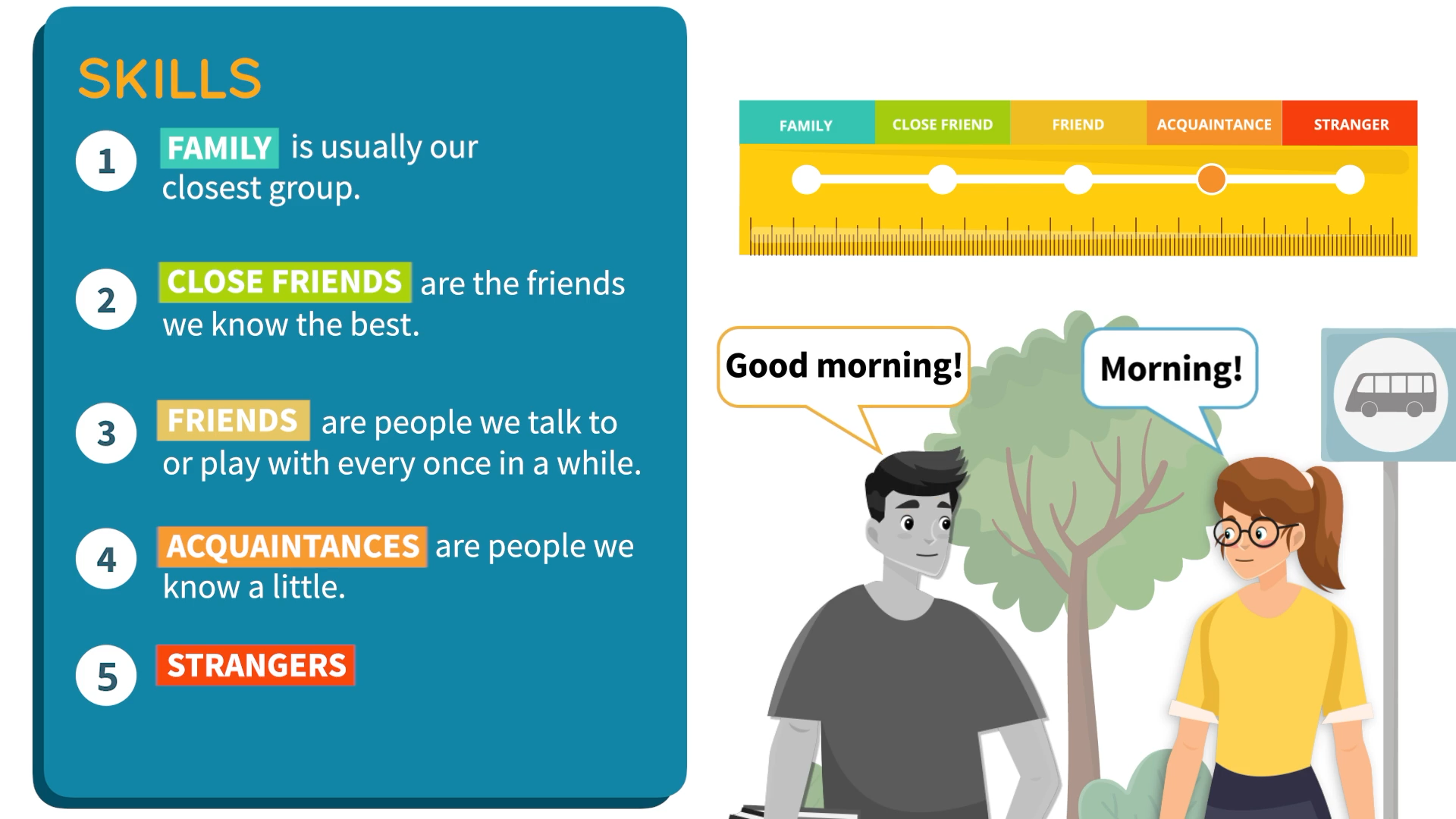
Introduction
Developing healthy relationships is an essential aspect of social-emotional learning. The Relationship Ruler is a valuable tool that helps students in Special Education understand how to interact with different people in their lives. This concept is founded on the idea that the number of positive experiences we have with someone determines our level of closeness with them. By using the Relationship Ruler, students can learn to choose actions and words that match the degree of closeness they share with various individuals, including family, close friends, friends, acquaintances, and strangers.
No-Prep Activity: Relationship Ruler Role-Playing
This no-prep activity requires no additional materials and can be easily implemented in the classroom. Begin by explaining the concept of the Relationship Ruler to your students, including the different categories: Family, Close Friends, Friends, Acquaintances, and Strangers. Then, have your students participate in a role-playing activity where they interact with each other by acting out different scenarios based on the Relationship Ruler categories.
For example, students can take turns pretending to be family members, close friends, or acquaintances and practice appropriate greetings, conversations, and personal space boundaries. This activity not only helps students understand the differences between the various relationship categories but also provides them with a safe environment to practice their social skills.
Discussion Questions
- Why is it important to understand the different levels of closeness in relationships?
- How can the Relationship Ruler help you make better decisions about what to say or do in different social situations?
- Can you think of a time when you might have acted differently if you had known about the Relationship Ruler?
- How can understanding the Relationship Ruler help you build stronger connections with others?
- What are some ways you can practice using the Relationship Ruler outside of the classroom?
Related Skills
Besides the Relationship Ruler, there are other essential social-emotional learning skills for students in Special Education, such as:
- Active Listening: Paying attention and responding appropriately to what others are saying.
- Empathy: Understanding and sharing the feelings of others.
- Conflict Resolution: Addressing disagreements and finding solutions that benefit everyone involved.
- Assertiveness: Communicating one’s needs and desires clearly and respectfully.
- Resilience: Adapting and bouncing back from challenging situations.
Next Steps
If you’re interested in learning more about the Relationship Ruler and other valuable social-emotional learning skills, we encourage you to sign up for free sample materials at Everyday Speech. These resources are designed to help educators working with students in Special Education and can be easily incorporated into your existing curriculum. By taking these steps, you can support your students in developing healthy relationships and navigating social situations with greater confidence.

